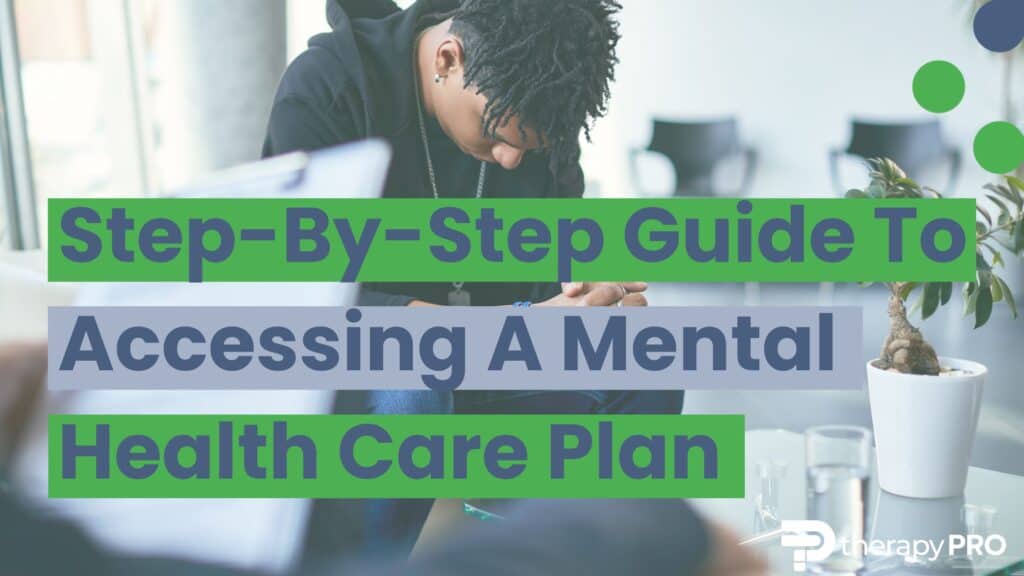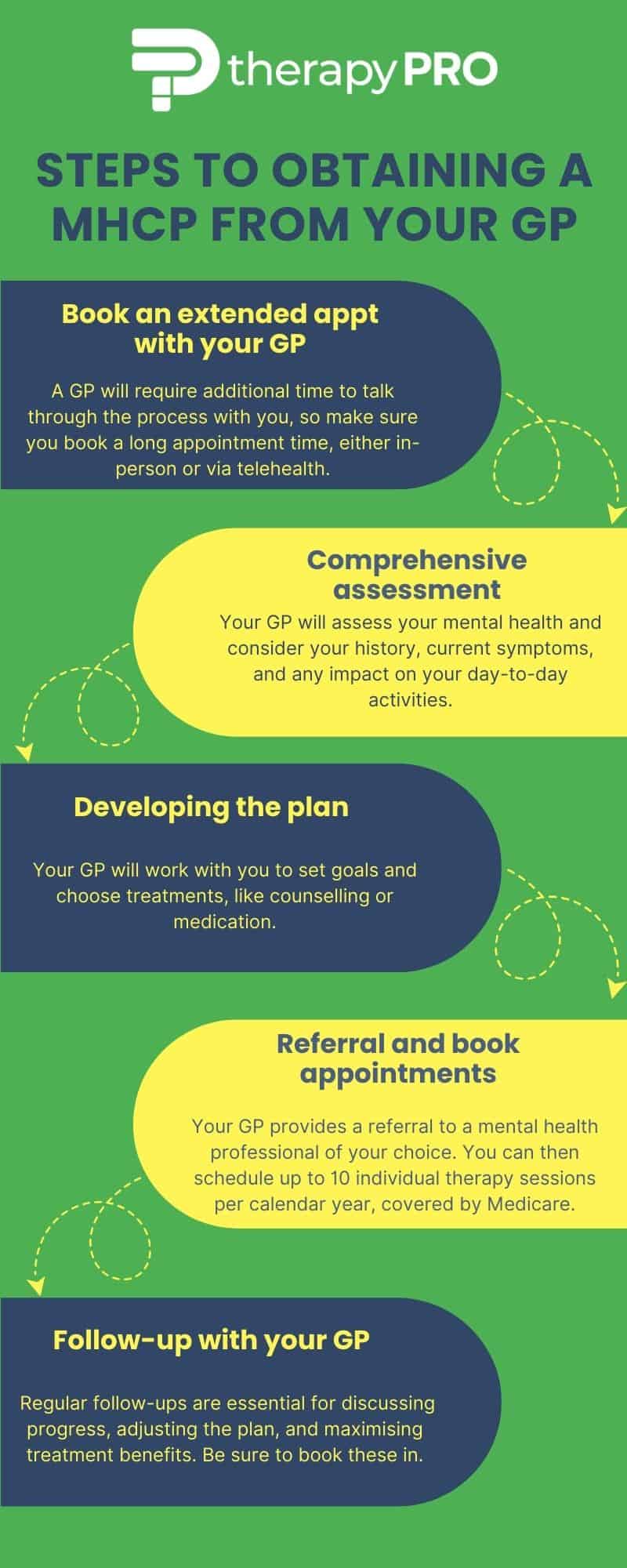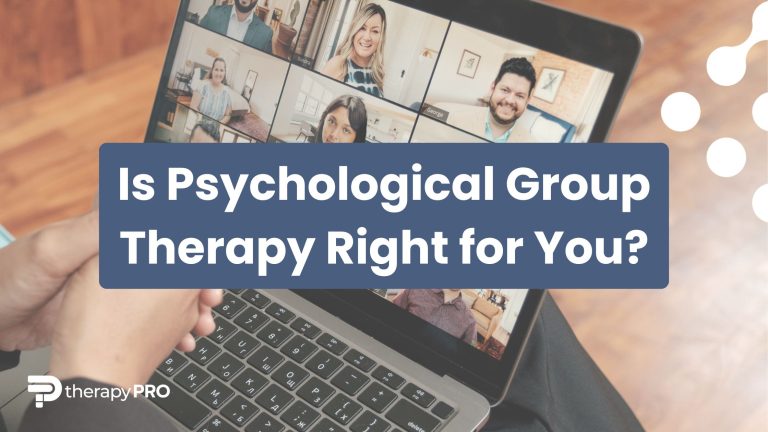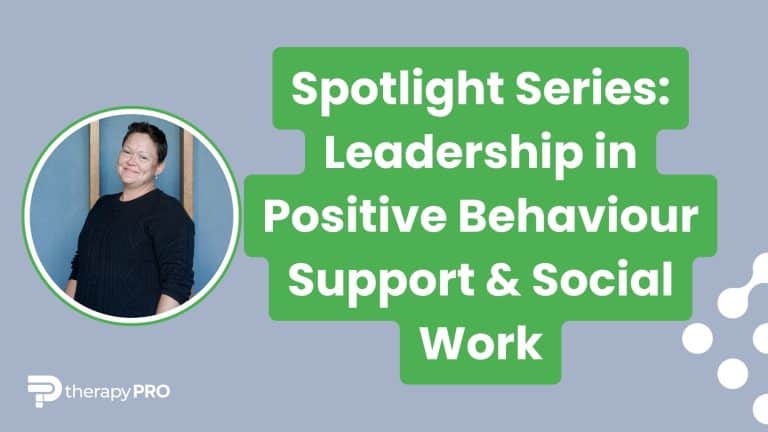A Step-by-Step Guide to Accessing a Mental Health Care Plan in Australia
Navigating the world of mental health care can be challenging, but understanding how to access the support you need is a vital first step.
In Australia, a Mental Health Care Plan (MHCP) offers a structured and supportive pathway for those seeking professional mental health support.
We’ve designed this article to walk you through the process of obtaining and utilising a MHCP, so that you are aware of your options and empowered to make choices that best suit your individual needs.
It’s not a difficult process, but there are a number of steps involved. Let’s begin by taking a closer look at what a Mental Health Care Plan is.
Understanding Mental Health Care Plans
What is a Mental Health Care Plan (MHCP)?
A MHCP is a support plan developed by your General Practitioner (GP) in Australia, tailored to address your specific mental health needs.
It outlines your goals, the type of services you require, and the steps to achieve improved mental well-being.
How to Obtain a MHCP
There are just a few steps you’ll have to follow to obtain a MHCP. The good news is that it easy!
Our #1 tip is to ensure that you book a long consultation with your GP so that you can cover all the details you need at the one time, saving the need to book a follow up appointment and slowing your access to mental health support. Did you know you can obtain a MHCP via telehealth GP appointments too, especially if it is difficult to access a GP face-to-face or you’re located in regional areas!
Here are the steps you’ll follow:
- Initial GP appointment: Begin by scheduling an extended appointment with your GP. This is a crucial step where you will discuss your mental health concerns in a confidential setting. Be open and honest about your challenges and symptoms, as this will help your GP understand your situation better. Remember: You can always schedule this appointment as a telehealth call – you don’t have to meet in person with your GP if you can’t physically attend their clinic.
- Comprehensive assessment: During this appointment, your GP will conduct a thorough assessment. This may involve discussing your mental health history, current symptoms, and how they impact your daily life. Your GP may use standardised assessment tools to gauge the severity and nature of your mental health concerns.
- Collaborative plan development: If your GP determines that a MHCP is suitable for you, they will work with you to develop the plan. This involves setting realistic and achievable mental health goals, choosing the types of treatments that will be most beneficial (like counseling, medication, or a combination of therapies), and discussing the expected outcomes.
- Referral to an allied health professional: With a MHCP in place, your GP can then provide referrals to appropriate mental health professionals, such as psychologists or mental health social workers. These referrals are tailored to your specific needs and preferences, ensuring you receive the right kind of support. If you have already done your research and you know the mental health professional you wish to visit, take this information with you to the appointment with your GP. You have the option to choose your mental health professional. You can get a better idea about the options and therapists available, if you look online first!
- Scheduling appointments: Once you have your referral, you can contact the mental health professional directly to schedule your sessions. These sessions can occur face-to-face or via telehealth. The MHCP typically covers up to 10 individual therapy sessions per calendar year, which are subsidised by Medicare. You need to give a copy of your MHCP to your therapist, or upload it online, to ensure that you can get the subsidy.
- Follow up with your GP: Regular follow ups with your GP are an integral part of the process. These appointments allow you to discuss your progress, make adjustments to your MHCP if necessary, and ensure you are getting the most out of your treatment.
Eligibility and Accessing a Mental Health Care Plan
Who is Eligible?
Eligibility for a MHCP is intentionally broad to encompass a wide range of individuals who may benefit from mental health support. Generally, anyone experiencing mental health issues, whether acute or chronic, mild or severe, can be considered for a MHCP.
When your GP undertakes their assessment of your mental health, they will consider a range of factors, including:
- Nature of your mental health concerns and issues, whether it’s anxiety, depression, stress-related disorders, or other conditions.
- Severity and duration of your symptoms. Both long-standing mental health issues and more recent concerns can be grounds for a MHCP.
- The impact on your life including your daily functioning, work, relationships, and overall quality of life.
- Your personal history including any past mental health diagnoses, treatments you’ve undergone, and how your current situation compares.
All of these points, and more, will be considered when determining your eligibility for a MHCP.
Choosing Your Mental Health Professional
Importantly, you have the freedom to choose your mental health professional, whether it be a psychologist or a mental health social worker. This choice empowers you to seek support in a way that feels most comfortable and effective for you.
Your GP may have a recommended professional, but you can undertake your own research should you wish to.
Using Your MHCP
Number of Visits and Duration – A standard MHCP typically covers up to 10 individual sessions with a mental health professional per calendar year. These sessions are partially covered by Medicare, easing the cost of mental health care.
Renewal and Continuation of Care – Your mental well-being journey doesn’t end after these sessions. Before your plan expires, you can discuss renewal options with your GP. If further support is needed, your GP can review and potentially renew your MHCP, allowing for continued access to mental health services.
Financial Aspects
Medicare Rebates – One of the significant advantages of a MHCP is the financial support offered through Medicare rebates. While out-of-pocket costs can vary, Medicare provides substantial rebates for mental health services, making professional support more accessible.
Here’s what you need to know about Medicare rebates for MHCPs:
- Rebate amount: The exact amount of the rebate depends on the service provided and the professional you consult. For instance, sessions with a psychologist, psychiatrist, or accredited social worker might have different rebate amounts.
- Standard rebate: As a general guide, for a standard session with a registered psychologist, Medicare may provide a rebate of approximately 75% to 85% of the Medicare Benefits Schedule (MBS) fee. This means if the psychologist charges the MBS fee, the out-of-pocket cost to you would be about 15% to 25% of the total charge.
- Gap payment: The difference between the full fee charged by the healthcare provider and the Medicare rebate is known as the ‘gap’ payment. This gap amount varies depending on the healthcare provider’s fees.
- Claiming the rebate: After paying for your session, you can claim your Medicare rebate. Many healthcare providers offer the convenience of processing this on the spot, or you can claim it online through the Medicare website or the Medicare mobile app.
- Annual limit: Remember, under an MHCP, you are eligible for rebates on up to 10 individual therapy sessions per calendar year. This means you can receive rebates for each of these sessions, helping to make ongoing mental health care more affordable.
Should you choose to access your mental health support via Therapy Pro’s online mental health services, and you have an active MHCP, the rebate is $92.90 for psychologists and $81.90 for mental health social workers.
Embracing Online Mental Health Services
In today’s digital age, accessing mental health support online has become increasingly feasible. Online mental health services offer flexibility, privacy, and the comfort of receiving support from your chosen environment. Understanding and accessing online mental health therapy is crucial as it expands your options for support.
Here at Therapy Pro, we understand that life can be filled with many ups and downs. Regardless of your background or personal story, there are times where you might face some challenges.
When this is the case for you, seeking mental health support can be a transformative step. It provides practical techniques to help you regain a sense of control and stability.
Our support services cater to a wide range of mental health needs, including dealing with depression, anxiety, significant life changes, grief, ASD, and various other stressors. We specialise in comprehensive mental health care for adolescents and adults.
As a renowned provider of mental health therapy, our reputation stems from deep clinical expertise. We lean on this experience as we support our clients to navigate their mental health and feel more supported.
Working Towards Better Mental Health is a Courageous Step
Remember, you’re not alone; support is available, and it’s tailored to meet your unique needs. Your mental well-being is a priority, and a Mental Health Care Plan is a powerful tool in navigating this path.
If you’re ready to take the next step, consider booking an online mental health therapy session. With options ranging from psychology services to social work, you have the power to choose the support that resonates with you.
Embrace this opportunity for growth and healing, and start your journey towards a healthier, happier you today.





